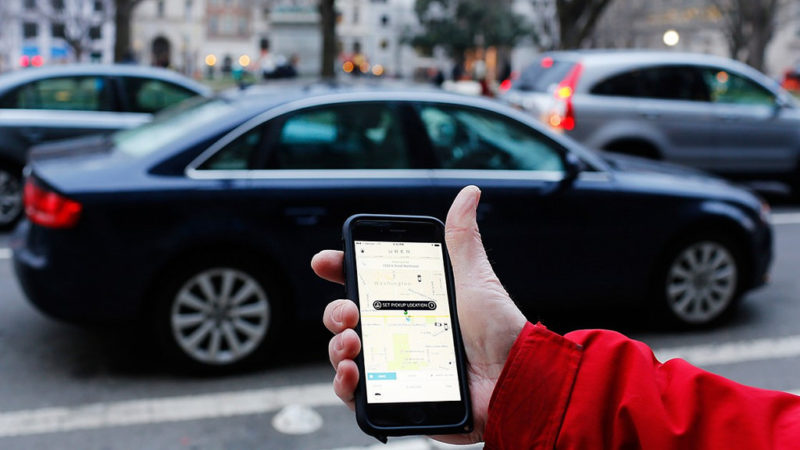The private cab app can operate in the capital once more, after a court overturned its licence suspension. But the IWGB is concerned about unresolved issues.

Uber has had its day in court, achieved the widely expected result and was granted a 15-month probationary license with tough new conditions.
Our union’s position on this has been consistent from day one – banning Uber without addressing the underlying problems with its business model would achieve nothing and cause misery for 40,000 precarious workers. We’d just be closing one app and let another open while operating on the same abusive terms.
The answer is to keep Uber in license but make sure we enforce all transport and employment laws rigorously.
Now it seems Transport for London (TfL) is determined to do the former, but Uber remains openly defiant of the latter. There were some grim details emerging from proceedings including news that Uber is investigating 1,100 drivers for ‘category A’ offences including sexual incidents and stalking.
As a union we welcome this long over due focus on in-cab sex crime. In fact, we have long campaigned for TfL to do much more to make this a higher priority. Unfortunately, TfL has been unwilling to work with driver community on this and last month we were disturbed to learn TfL went out of their way to also stop the Met from working with us but were ultimately unsuccessful in doing so.
Yet, despite all the concern raised about alleged Uber driver sex offending and in the wake of the John Worboys scandal, TfL is still not pushing ahead to mandate CCTV in all licensed taxis and private hire vehicles in London, something that we have adamantly advocated for.
But it’s important that Uber isn’t allowed to scapegoat all drivers. Denied normal employment rights, Uber drivers can be dismissed on a whim without any recourse to due process or a functioning appeals process. Indeed, Uber’s general manager, Tom Elvidge admitted on the stand last week that drivers will never be given the benefit of the doubt.
Last year Uber announced to fanfare the implementation of a ‘Partner Appeals’ process, but we have been unable to get a single case reviewed where we had reason to believe a driver had been unfairly dismissed and whose case we felt warranted closer review. Recently, Uber set up an external review panel for driver welfare which includes Polly McKenzie who heads up Demos. But again, we find a closed door with McKenzie yet to answer a single one of our emails or phone calls.
While Uber may feel individuals’ behaviour and their failure to manage it put them in legal jeopardy, the reverse is also true.
It is a criminal offence for a driver to accept a job from a customer – it must be lawfully accepted by the operator first. But Uber has long played a clever game of hide-the-ball on how their system really works.
In a legal battle against the London Taxi Driver Association, Uber told a High Court Judge the firm accepted the booking but then told the Employment Tribunal Judge in our worker rights case that the driver did so in a vain attempt to deny it was acting as an employer.
The truth was revealed last week: that Uber had drivers accepting bookings all along. TfL’s QC had Uber admit on stand that it caused its drivers to commit 2.5 million criminal offences a week until it eventually corrected the app.
Chief Magistrate Emma Arbuthnot had a simple but vexing question to answer this week – is Uber ‘fit and proper’ to hold a license?
In challenging Uber’s ‘fitness’ TfL rightly questioned Uber’s approach to passenger safety and welfare but never challenged the same for drivers even though our survey shows 49% of Uber drivers are assaulted at work, 78% have been threatened with violence and 83% have suffered hate crime.
Uber drivers are denied their statutory worker rights, not just for the minimum wage and holiday pay – but also other important protections necessary for an occupation in a harsh regulatory environment, such as protection against discrimination and whistle blower protection.
The ‘fitness’ test for public licensing badly needs clearer definition so that in future both workers and consumers are better protected.
James Farrar is chair of the United Private Hire Drivers branch of the IWGB union.
Left Foot Forward doesn't have the backing of big business or billionaires. We rely on the kind and generous support of ordinary people like you.
You can support hard-hitting journalism that holds the right to account, provides a forum for debate among progressives, and covers the stories the rest of the media ignore. Donate today.



